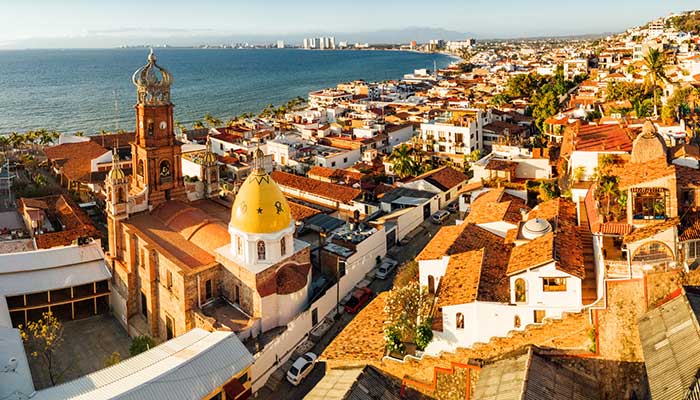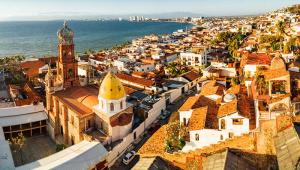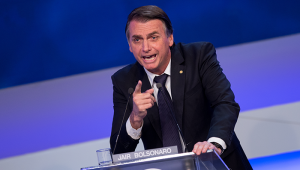One of the most notorious political sayings to have ever gained currency in Mexico was coined by one of the country’s most notorious powerbrokers.
“A politician who is poor, is a poor politician,” observed Carlos Hank González, a strongman within the old guard of the Institutional Revolutionary Party (PRI), which shaped Mexican life for most of the 20th century.
Hank, who died in 2001, would know.
Alongside his roles at the commanding heights of the PRI and successive governments, he amassed a fortune that made his family one of the country’s richest.
But according to testimony to the US Senate, he was also il capo di tutti capi – the “primary intermediary between the multinational drug trafficking enterprises and the Mexican political system.”
Hank’s refrain epitomises the brazen scale of corruption at the top of Mexican politics.
It also helps to explain the landslide victory in July of Andrés Manuel López Obrador and why he has made corruption the centrepiece of his fiscal policy.
Popularly known as ‘AMLO’, López Obrador is offering one of the most unusual budget platforms in recent Latin American history, targeting what Mexico’s president-elect calls a political mafiosi that has robbed the country blind.
‘Republican austerity’
A fierce critique of his predecessors, López Obrador – who will assume office on 1 December – is poised to revive an interventionist state founded on “republican austerity”.
He intends to expand social programmes, raise pensions, transform opportunities for the young, and hike the minimum wage. Public infrastructure investment will be doubled and a new agro-industrial strategy will be seeded in the fields to achieve food self-sufficiency.
It is a costly wishlist – yet Mexico’s new leader is also promising not to raise taxes or debts.
He insists he can balance the books with money to spare by rationalising public expenditure and recovering tens of billions of dollars wasted on lavish payments to public servants and lost to corruption.
Setting out his “peaceful social revolution”, López Obrador has stated: “The idea that Mexico cannot invest in development for lack of funding has been widely disseminated ... The problem is corruption, not a lack of funds.”
The president-elect has expended considerable energy in recent years alleging wholesale corruption reaching to the very top of the political system.
By slashing the colossal perks enjoyed by the presidency, ministers, judges and senior civil servants – from “stratospheric wages” and vastly inflated pensions to luxury aircraft – he insists he can save a whopping US$20 billion for the public purse.
AMLO has also targeted procurement procedures – a key source of kickbacks – and points to potential savings in reformed purchasing identified by the OECD of US$6.5 billion.
“Government officials are getting unconscionably rich at the expense of the state,” he says. “The most severe corruption happens in the halls of political and economic power.”
There is no doubt this policy platform has struck a nerve.
Many Mexicans associate the failure of 30 years of economic liberalisation to eradicate poverty and inequality with pervasive corruption among the rich and powerful.
Public scrutiny of graft has grown intense under the outgoing PRI president, Enrique Peña Nieto, who has been rocked by scandals – Mexico fell 30 places in Transparency International’s corruption perceptions index to 135th place during his tenure.
The cost of corruption has been put at between 9% and 10% of Mexico’s GDP, and if that is not bad enough, the impunity enjoyed by those responsible is even worse: in 2017 the country occupied an ignominious fifth place in the Global Impunity Index.
Friends and foes
Predictably, the jury is still out among economists struggling to put a label on López Obrador.
Supporters of this “Mexican messiah” have sought to reassure investors that he will be fiscally responsible, and point to his pragmatic record as Mexico City’s mayor from 2000–05 when he expanded social spending and raised pensions without breaking the bank.
His likely finance minister, Carlos Manuel Urzúa, has publicly stated that the administration will not raise the debt-to-GDP ratio.
Critics of López Obrador, however, label him as an old-school leftwinger with a statist reflex and a shaky grasp of economics whose sums do not add up: his spending plans could cost at least 3.4% of GDP at a time when the budget deficit has been hovering at 2.5%.
They say that while increased social spending will fuel consumption-driven growth, the deficit could creep up without a rapid windfall from his plans to rationalize expenditure and claw back funds lost to corruption.
Senior civil servants will mount stiff resistance to any effort to cut their pay, perks and jobs – and López Obrador has powerful enemies determined to stop him stripping them of their ill-gotten gains.
A bellwether of his performance will be his attitude towards the state oil giant Pemex, mainly because Mexico’s economy has been sluggish in recent years due to low oil prices.
AMLO has been a vocal opponent of energy reforms in 2013 that opened the door to private investment, which could now slow just when he needs oil revenues most.
In the absence of finance, Mexico’s oil production will continue to decline – it fell from 3.4 million barrels per day in 2004 to under 2 million last year – making it hard to improve on 2.5% annual growth under Peña Nieto.
Moreover, López Obrador’s promises to “eliminate, not reduce” corruption are untested – he has provided few details about how he aims to recover stolen funds, and in the past some of his own supporters have been accused of graft.
It is one thing to adopt a zero tolerance attitude to corruption by offering a weary public the example of your own incorruptibility – López Obrador has decreed a huge salary cut as president and will auction Mexico’s presidential plane.
But in a system based on patronage where “a politician who is poor, is a poor politician”, it is quite another to lead a government on that basis.















